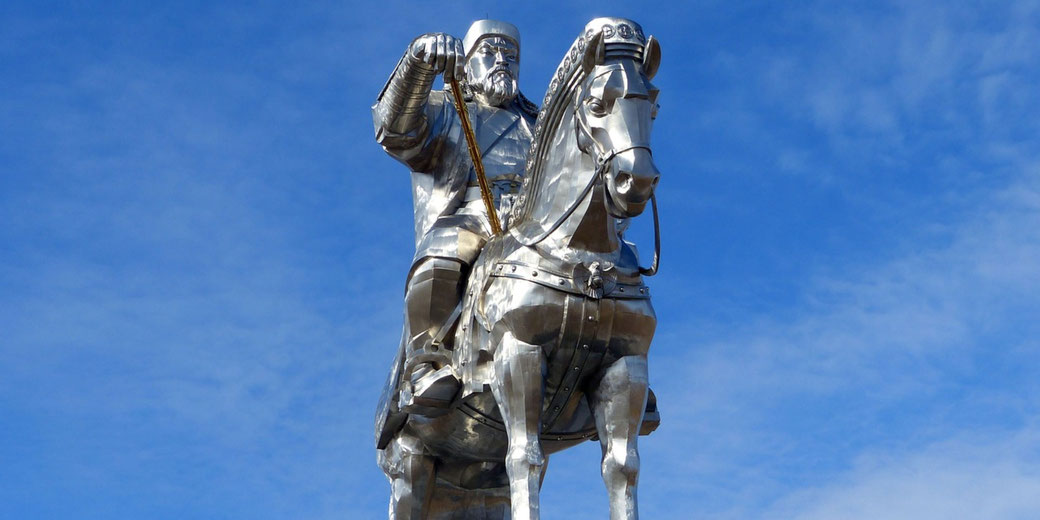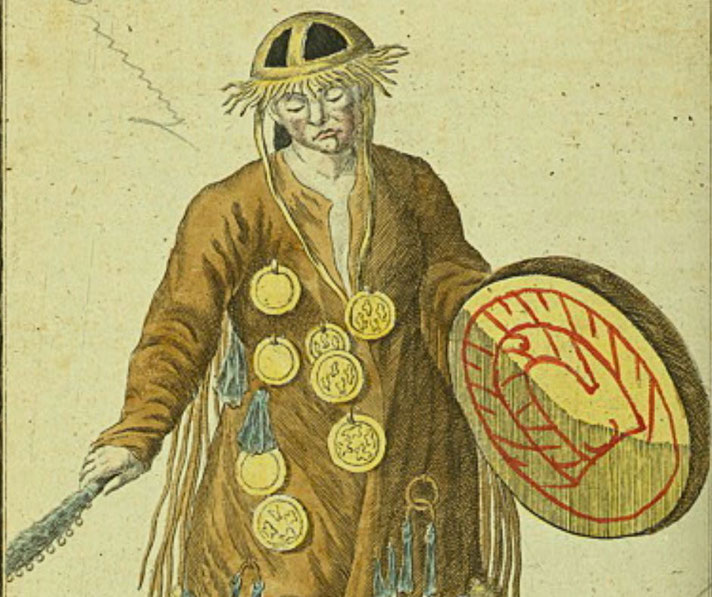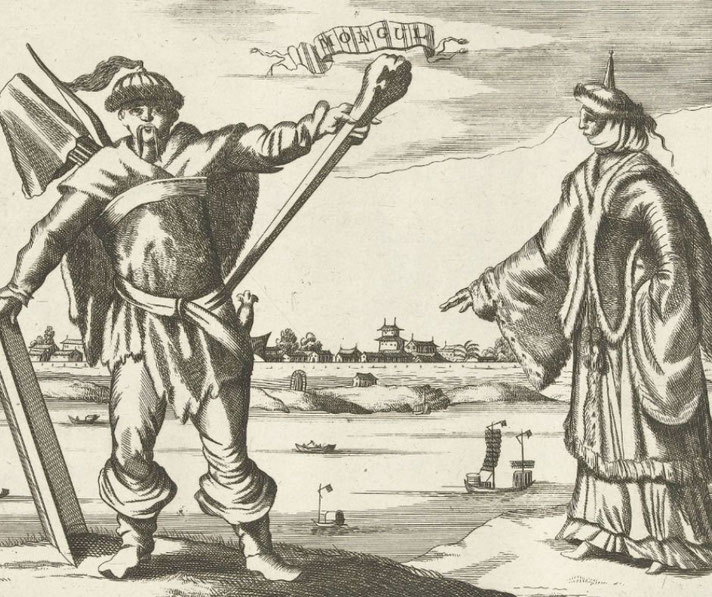There is a good chance that you are a descendant of Genghis Khan. Here's why.

Imagine being a part of one of the most powerful dynasties the world has ever known, tracing your lineage back to the steppes of Mongolia, and being connected to an individual whose name is synonymous with conquest and empire.
This might seem like the stuff of fantasy, but for many, it could be a reality. Recent scientific research suggests that millions of people across the globe could be descendants of one man: Genghis Khan.
Genghis Khan, the fearsome Mongolian warrior of the 13th century, not only left behind a legacy of extraordinary military achievements, but also a potentially prolific genetic heritage.
It is estimated that up to 16 million men, could be genealogical descendants of Khan.
But how can we make sense of such a claim?
How do we trace the genetic path from the vast Mongolian steppe of the 13th century to the diverse global population of the 21st century?
Who was Genghis Khan?
Genghis Khan, originally named Temujin, was born around 1162 in the harsh, rugged terrains of Mongolia.
His early life was marked by struggle and hardship, but it was also here that he began to display the strategic and leadership skills that would guide him towards his destiny.
After his father's murder, he was thrust into the brutal world of Mongolian tribal politics and warfare.
Rising through the ranks, he united the often-fractious nomadic tribes, creating a formidable force that he led with a potent mix of military strategy, psychological warfare, and innovative administration.
By 1206, Temujin had successfully consolidated power and was bestowed the title of "Genghis Khan," which roughly translates to "Universal Ruler."
The title was fitting, for he went on to establish the largest contiguous land empire in human history.
From Asia to Europe, Genghis Khan and his Mongol hordes swept across the continents, conquering vast territories and influencing the cultures within them.
His empire covered vast parts of China, Russia, the Middle East, and even Eastern Europe.
Despite his death in 1227, his descendants continued to expand the empire, maintaining a significant impact on the world's demographic and cultural landscapes.
While Genghis Khan is often remembered for his conquests and the brutality that sometimes accompanied them, his influence extended far beyond the battlefield.
He implemented innovative administrative systems, fostered trade and communication, and created a legal code known as Yassa.
He adopted meritocracy over aristocracy, promoted religious tolerance, and developed an efficient postal system, aspects of which are mirrored in many modern societies.
It's this larger-than-life persona - the conqueror, the strategist, the statesman - that makes the prospect of being linked to Genghis Khan a topic of intrigue.

The genetic legacy of Genghis Khan
Just as Genghis Khan's military and political actions had a profound impact on history, his biological legacy has also left an indelible mark.
The clue to this legacy lies within the Y-chromosome, a piece of our genetic puzzle that fathers pass on to their sons virtually unchanged.
Any variations or mutations that occur in the Y-chromosome are also passed on, allowing geneticists to trace lineage back through generations.
It's through this lens of Y-chromosome analysis that the genetic impact of Genghis Khan begins to emerge.
In 2003, a groundbreaking study led by Dr. Tatiana Zerjal from the University of Leicester in the United Kingdom identified a specific Y-chromosome haplotype (a group of genes within an organism that was inherited together from a single parent) that was present in about 8% of men in a large area of Asia, which roughly equates to about 0.5% of the global population.
The distribution of this genetic marker aligns with the historic extent of the Mongol Empire, leading the researchers to suggest that the lineage originated with Genghis Khan and spread through his descendants.
How is this possible?
To fully understand the possibility of Genghis Khan's extensive genetic legacy, it's necessary to delve into the historical context surrounding his descendants.
Historical records and folklore suggest that Genghis Khan had numerous children. His sons, in particular, were strategically married off to form alliances and secure territories, further extending the influence and reach of the Mongol Empire.
The most prominent of these sons was Jochi, Chagatai, Ögedei, and Tolui. Each played crucial roles in the administration and expansion of the empire, perpetuating their father's lineage across vast territories.
In particular, Tolui, Genghis Khan's youngest son with his favorite wife, Börte, was the father of Möngke and Kublai Khan - the latter establishing the influential Yuan Dynasty in China, further entrenching the genetic footprint.
Genghis Khan's descendants were not just confined to Asia, though. The extent of the Mongol Empire and the practice of marrying into local nobility to establish rule meant that his genetic influence potentially extended across much of the known world, reaching as far as Eastern Europe.
This geographical spread is vital to understanding the potential proliferation of Genghis Khan's genetic legacy.
Moreover, the cultural practice of polygamy among Mongol nobles, including Genghis Khan and his male descendants, also contributes to this narrative.
With multiple wives and children, the chances of their Y-chromosome being passed down through generations significantly increased.

Understanding population genetics and migration
When we think of genealogy, we often picture a family tree branching out in different directions.
But from a broader perspective, it's more akin to a river, with tributaries and streams merging and diverging over time.
This metaphor is especially pertinent when discussing population genetics, a field of study concerned with the distribution and changes in genetic variations in populations.
By studying these patterns, scientists can trace how groups of people have moved, interacted, and intermingled throughout history.
The Mongol Empire, with its vast dominion and distinctive societal and cultural practices, is a textbook case of population genetics and migration at play.
The Mongol invasions of the 13th and 14th centuries were not merely military conquests but catalyzed significant movements of people across Eurasia.
The Empire's political strategy, which involved marrying off Genghis Khan's descendants into local nobility, led to his lineage becoming deeply rooted in various populations across the continent.
Also, the Mongols encouraged and facilitated trade throughout their Empire. The renowned Silk Road, a network of trade routes connecting the East and the West, flourished under Mongol rule.
Traders, missionaries, and other travelers moved freely across these routes, unwittingly serving as agents of gene flow, carrying and disseminating genes across vast distances.
Moreover, the societal structure of the Mongol Empire also played a role. The elites, including Genghis Khan and his descendants, had preferential access to resources and, therefore, higher reproductive success.
This phenomenon, known as "genetic drift," can lead to specific genes becoming more prevalent within a population over time. In this case, the Y-chromosome lineage of Genghis Khan and his progeny may have become more common simply because they had more offspring.
The results of additional genetic research
In the two decades since the seminal study by Dr. Tatiana Zerjal and her team, numerous research initiatives have attempted to build upon and refine our understanding of Genghis Khan's genetic legacy.
Advancements in technology, together with an increasing wealth of genomic data from around the world, have provided more detailed insights into our genetic heritage.
Further studies have not only confirmed the existence of the specific Y-chromosome haplotype associated with Genghis Khan, but also revealed its prevalence across diverse populations.
These include regions such as the Caspian Sea, the Himalayas, and even areas in Eastern Europe, all once part of or influenced by the vast Mongol Empire.
Notably, researchers have found higher concentrations of the lineage in Mongolia and regions along the former Silk Road, reinforcing the connection to Genghis Khan and his descendants.
While the assertion that one man, Genghis Khan, could have left such a significant genetic legacy may seem surprising, it aligns with the concept of the "genetic bottleneck."
A genetic bottleneck occurs when a population's size significantly decreases or when a small group becomes isolated and proliferates, leading to a reduced genetic variation and the amplification of certain genes.
Given the Mongol Empire's history and the Khan lineage's historical prominence, both scenarios are plausible.
Additionally, the advent of consumer genetic testing has allowed more people than ever before to explore their ancestry.
While these tests are not conclusive proof of lineage — they can't definitively say you are a descendant of Genghis Khan — they have nonetheless fueled public interest in the topic.
What does this mean for your family tree?
In the world of genetics, your DNA is like a personal history book. It carries stories of your ancestors, tracing back hundreds or even thousands of years.
And the notion that one of these ancestral stories could lead to Genghis Khan is undeniably fascinating.
But what does this mean for our understanding of personal ancestry and identity?
If you are among the millions who share the Y-chromosome haplotype associated with Genghis Khan, it might mean that you have a common ancestor with him.
But remember, this doesn't necessarily mean you're directly descended from the Mongol leader.
Genetics can tell us about common lineage, but it's much more challenging to specify direct relationships, especially as we move further back in time.
Even if Genghis Khan is part of your genetic heritage, he would be just one of the many thousands of individuals in your ancestral lineage.
While he certainly was an influential figure, it's crucial to keep in mind that we're all the product of countless ancestors, each contributing a part to who we are today.
It's also important to note that while our genes can tell us about our ancestry, they don't define us.
Your DNA is just one factor among many - including your environment, culture, experiences, and choices - that shape your identity.
The concept of being related to Genghis Khan is certainly a fascinating conversation starter, but it doesn't change who you are as a person.
From a broader perspective, this topic serves as a potent reminder of our interconnectedness.
The idea that millions of people around the world could share a genetic link to a common ancestor underscores the fact that, no matter where we come from or what our cultural backgrounds are, we're all part of the complex tapestry of human history.
In the grand scope of our genetic ancestry, we're far more connected than we might think.
Some criticisms and skepticism about this research
The assertion that Genghis Khan left behind a substantial genetic legacy has certainly not been without controversy.
Since Dr. Zerjal's study was published, several criticisms and counterarguments have emerged, leading to lively debate within the scientific community.
One of the main points of contention lies in the very basis of the claim - the Y-chromosome haplotype identified as Genghis Khan's.
Critics argue that while the specific lineage is indeed prevalent in regions once under Mongol control, associating it directly with Genghis Khan is speculative.
As the haplotype could have existed before Genghis Khan's time or could have been spread by descendants who are not his direct bloodline, the association with him specifically is somewhat circumstantial.
Moreover, some critics argue that the initial study and those that followed overestimated the genetic impact of Genghis Khan.
They contend that the studies did not sufficiently account for other factors that could have contributed to the wide spread of the haplotype, such as regular gene flow between populations over many centuries.
A further point of criticism is the reliance on historical records to support the genetic findings.
As these records often contain exaggerations and inaccuracies, using them to validate the genetic claims could potentially skew the interpretation of the data.
Finally, there is a broader critique concerning the popular fascination with tracing ancestry back to famous historical figures.
Some experts caution against an oversimplification of genetic ancestry and warn of the potential dangers of attributing too much importance to our genetic ties.
After all, while our genetic makeup influences our physical characteristics and some aspects of our health, it doesn't dictate our behaviors, abilities, or identities.
These counterarguments underscore the complexity of genetic ancestry research and remind us to view claims like "being descended from Genghis Khan" with a healthy dose of skepticism.
Despite these critiques, however, the idea continues to captivate the public imagination, and further research may yet bring us closer to understanding the full scope of Genghis Khan's genetic legacy.
What do you need help with?
Download ready-to-use digital learning resources
Copyright © History Skills 2014-2025.
Contact via email
With the exception of links to external sites, some historical sources and extracts from specific publications, all content on this website is copyrighted by History Skills. This content may not be copied, republished or redistributed without written permission from the website creator. Please use the Contact page to obtain relevant permission.





